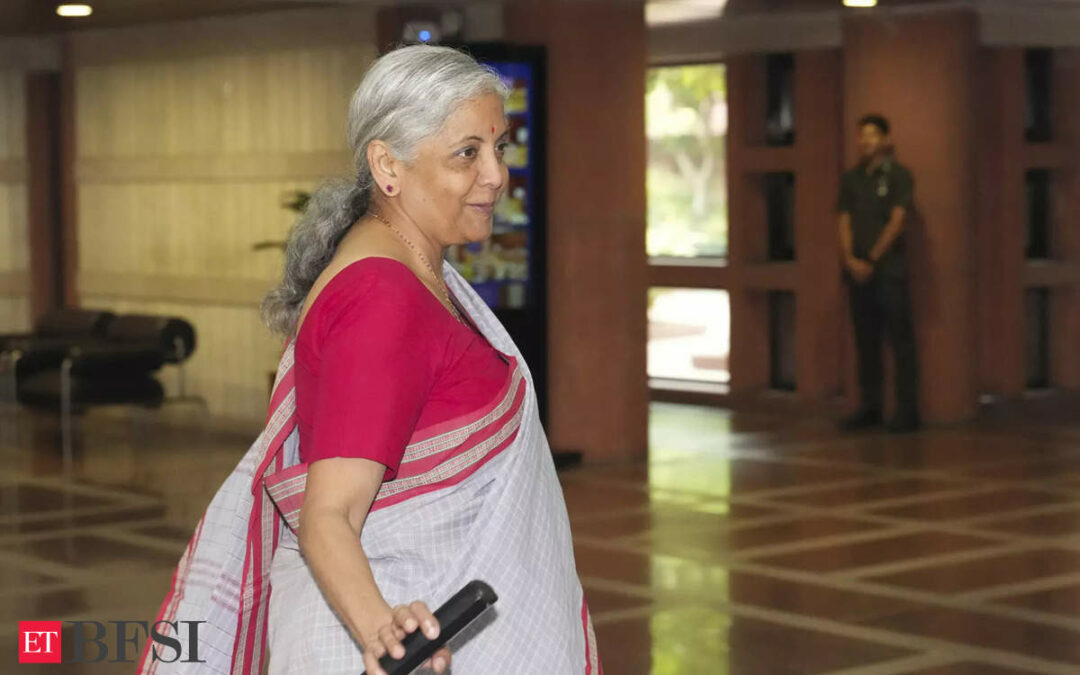Gold loan companies want the government to grant eligible gold loan NBFCs with ‘priority sector status’ and to reduce the import duty on gold in the upcoming Union Budget.
George Alexander Muthoot, managing director of Muthoot Finance said ” We urge the government to grant eligible gold loan NBFCs with ‘priority sector status’. We believe that providing priority sector status to eligible gold loans NBFCs will be a step forward in driving financial inclusion as it majorly impacts the small borrowers whose borrowing needs are frequently less than Rs 50,000.”
“We also propose for a ‘Gold linked credit line via UPI’ that can go a long way in helping households/small business owners meet their financing needs and monetise idle gold jewellery. Once the NBFCs are allowed to link with the UPI payment system, this will act as a secured credit that would be extended by NBFCs at a lower interest rate (12%-18%) compared to the high interest rates (around 36%) charged by credit cards,” he said.
The gold loan NBFCs have sought a level playing field by bridging the disparity and aligning the single counterparty exposure limits for them in comparison with other NBFCs i.e. 20% of Tier-1 capital. This restriction impacts the ability to lend credit and negatively impacts our potential customers.
Umesh Mohanan, ED & CEO of Indel Money said “Gold loan NBFCs are mainly looking at whether there will be any cut or relaxation in the gold import duty in the Union Budget-2024-25. Gold imports now attract 15% duty. Any such move will lead to a crash in gold price in the domestic market, which bodes ill for the gold loan business.”
Mohanan said “RBI’s curbs on providing unsecured retail loans by banks and NBFCs are certainly boosting the gold loan business. However, in the case of other NBFCs, a reduction in bank lending to the shadow banks, following the RBI directive in November last year, is a serious concern. The latest RBI Financial Stability Report highlights that, in terms of net borrowing, NBFCs are the largest participants in the banking system and a major part of their borrowings come from the Scheduled Commercial Banks (SCB). The central bank thinks that the caution in bank lending to the NBFCs should continue. In such a scenario, in the upcoming Budget, they are demanding the creation of a dedicated refinance agency like SIDBI for NBFCs to reduce their dependence on the SCBs, maintain liquidity and drive loan growth. Further, NBFCs are also demanding harmonisation of rules and regulations with the banks, especially in the areas of recovery and taxation. Currently, there is no level-playing field, and the banks are at an advantageous position compared with the shadow banks.”Commenting about the retail NCDs, Muthoot said “With the growing impetus on diversifying the funding mix of NBFCs, we would urge the regulators and government to simplify the taxation compliance on the TDS on listed NCDs which is currently at 10% TDS. The selling and re-selling of listed NCDs through stock exchanges ends up putting a taxation burden on the end investor. Since the TDS were introduced on listed securities keeping in mind that the customers are not paying the tax, however on ground there is an adequate trail of holders and interest payments. Our other recommendation is for allowing additional interest rate on Public Issue of Secured Non-Convertible Debentures (NCDs) issued to retail investors, pensioners and senior citizens over and above the interest rate applicable to institutional investors. We believe these regulations are crucial in order to attract more retail investors and ensure fair compensations to all our investors and stakeholders.”










